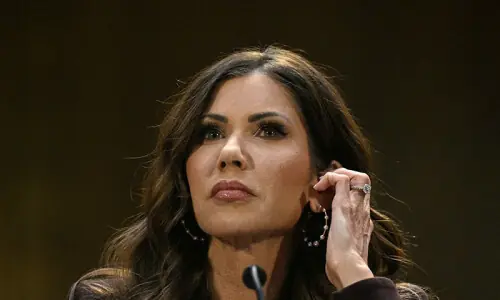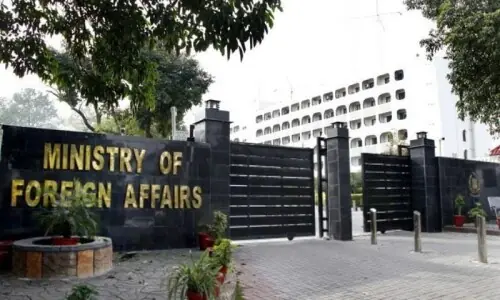FOR the world’s largest democracy, the writing is on the wall: communal politics in India has triumphed in an age that will define the future of the republic.
Despite forecasts of failure from pundits who had predicted that India’s economic challenges would chip away at Narendra Modi’s vote bank, the ultra-nationalist BJP is poised to form government for another five years after a landslide victory in the Lok Sabha election.
The results are astounding, and depressingly show that religious hatred and sectarian politics can be exploited to lure voters.
Notably, the months leading up to Mr Modi’s campaign were marked by anti-Muslim and anti-Pakistan rants, with India going so far as to escalate tensions by conducting air strikes inside Pakistan in order to whip up nationalist sentiment.
Now that elections are over, we hope that Mr Modi will rein in his rhetoric that had encouraged Hindu extremist groups to step up their intimidation of minorities.
And the focus must turn to a practical way forward for sustainable peace in the subcontinent. This is possible solely through an unwavering commitment to dialogue, an offer Pakistan has extended — and India has rebuffed — consistently.
A day before the election results, a photograph capturing an exchange between Foreign Minister Shah Mehmood Qureshi and his Indian counterpart Sushma Swaraj emerged from Bishkek, Kyrgyzstan, reigniting optimism about a thaw in relations between Pakistan and India.
Newspaper reports indicate that Ms Swaraj shared sweets and acknowledged that past conversations had been bitter.
Against this backdrop, there is speculation that the meeting could re-establish contact between Islamabad and Delhi after months of plunging relations.
While there may be optimism, India’s past record does not show it has a genuine desire for peace.
Even before the Pulwama attack, when Prime Minister Imran Khan invited an Indian delegation to the Kartarpur groundbreaking ceremony, Ms Swaraj was conspicuous by her absence; she also announced India’s boycott of the Saarc summit in Pakistan.
In fact, since the PTI has assumed power, Prime Minister Imran Khan has reiterated his commitment to dialogue with India several times, appealing to Mr Modi to give peace a chance — invitations which have repeatedly been spurned.
Despite the string of hostile snubs from the Indian government, Pakistan has shown restraint and pragmatism — a message underscored on Wednesday by Mr Qureshi in Bishkek, where he put the dialogue offer back on the table.
It is too soon to say whether or not Mr Khan was correct in predicting that a right-wing government in India would be better for peace talks.
Much would depend on a change in attitude on the part of India, whose hawkish behaviour has been the main obstruction in the quest for peace.
The optimism might not be altogether misplaced but it must be followed by a sincere policy shift.
India’s failure to ensure this will sound the death knell for regional peace.
Published in Dawn, May 24th, 2019






























